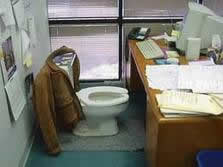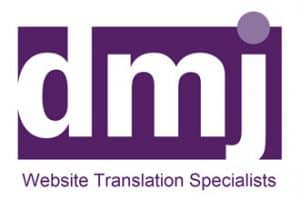Doing what we do, we see a fair amount of what happens when people get it wrong and often spend a lot of time trying to help them. The sad thing is that with more knowledge of French bureaucracy and the differences between the French and the British attitudes to life, a lot of the time this sort of situation can be avoided or at least improved.
So in this post, I am going to try and set down a few general principles about operating your life in France both professionally and privately and give some pointers on how to avoid the traps that life sets. In the next post, I will talk about what happens if the bailiffs (huissiers) do call and how to deal with it all.
Firstly, ignorance is not bliss in France – indeed it is not an excuse at all and won’t be treated as such. Moreover, you cannot use a lack of knowledge of French as an excuse. To live in France, you must be able to understand and speak French according to French law and there is no imperative to provide translations in any shape or form. Perhaps if you remember that Napoleonic Law (now superseded) started from the premise that you were guilty until proven innocent; and that the French find it very hard to adapt to change then you will realise what you are up against.
Do not borrow money if you can’t pay it back. Banks rarely give out overdrafts or loans and if they do, your property will be used as a safeguard against them. It is easy to think that overdrafts in particular are more permanent but this is not usual – check to see if there is a time limit for paying the money back. Food for thought – COFIDIS which is one of the biggest money lenders in France has created its own cabinet d’huissiers to pursue unpaid loans!
If you don’t understand the letter, the bill, or the statement, it is not a good game plan to chuck it in the bin or on the pile on the desk. It won’t go away and with the French system of majorations (interest on monies owed) kicking in promptly, the more you forget to do something, generally the more money you owe. Go to a bilingual person to get your letter translated – French is a very subtle language and it is easy to misunderstand. If the problem is an unpaid debt then you need to address it. Hoping to be able to pay it later will not do. Most demands for cotisations, for example, end by saying that you must contact the relevant organisation to sort out some sort of payment plan.
Don’t try to stay under the radar. It is certainly not possible in France even if you can do it elsewhere. One of the basic principles of French society is ‘traçabilité’ – that is everyone and everything must have proof of identity so it can be tracked down if necessary. This is a good thing if you are looking at controlling an outbreak of foot and mouth but in a country where you must be able to show proof of identity or risk being carted off to the gendarmerie while they check you out, it is not sensible to think you can escape detection. If you own or rent a house but don’t put in a tax return, you can be checked out. If you don’t have healthcare, when it comes to an accident and you are faced with a 60,000€ bill, then your house is at risk. With all the cross-country measures in place to prevent money laundering, it is difficult these days to hide bank accounts. Mutual Cooperation for the Recovery of Debts means that unpaid tax bills in the UK can be transferred to France or vice versa.

Since when you sell a property in France the money first goes to the notaire who is after all a government tax collector, any money that you owe in France will be taken off the sale proceeds before it is sent to you. If there is a big problem, i.e. not just an unpaid EDF bill, then you might find it takes years to get your money back.
Having the correct paperwork is essential. The French solve everything with paperwork. From pet identity cards to driving licences, from cartes professionnelles (one of our clients got hauled into the local gendarmerie because he had left his at home) to siret numbers, from the green sticker on your windscreen to proof of address, it is as well to know what is essential to make your life easier. And one of the most essential is an avis d’impôt. You cannot claim for benefits or bourses without them. Anything means-tested comes off them whether it is an ARS grant or your taxe d’habitation.
Il faut prévoir. This is a fundamental. French admin is not well organised nor is it predictable – if you are sorted then it can’t catch you out. If you run a business then make sure you have got a prediction of the year’s cotisation payments so you are not left with a totally unforeseen demand and 2 weeks to find the money. Make sure you know not just what your entitlements are but also what you have to pay out. The number of people who get caught out by social charges on unearned income for instance . . .

Don’t avoid the issue. You may not have the money to pay an accountant or even pay your cotisations bill. But if you avoid putting in tax returns, then the various organisations such as the RSI whose mission is to recover the social charges will just go on putting up the amount until it is either dealt with or you are in real trouble that will take years to sort out. And of course, this is when the huissiers start to come round. And when your bank account gets frozen. And when your house is sold from under you by the government to pay your debts.
Next time then, I will try giving you a few useful pointers about how to deal with the huissiers and what steps to take to get yourself out of the \”merde\” and into a tolerable position where you don’t have to lose everything.


